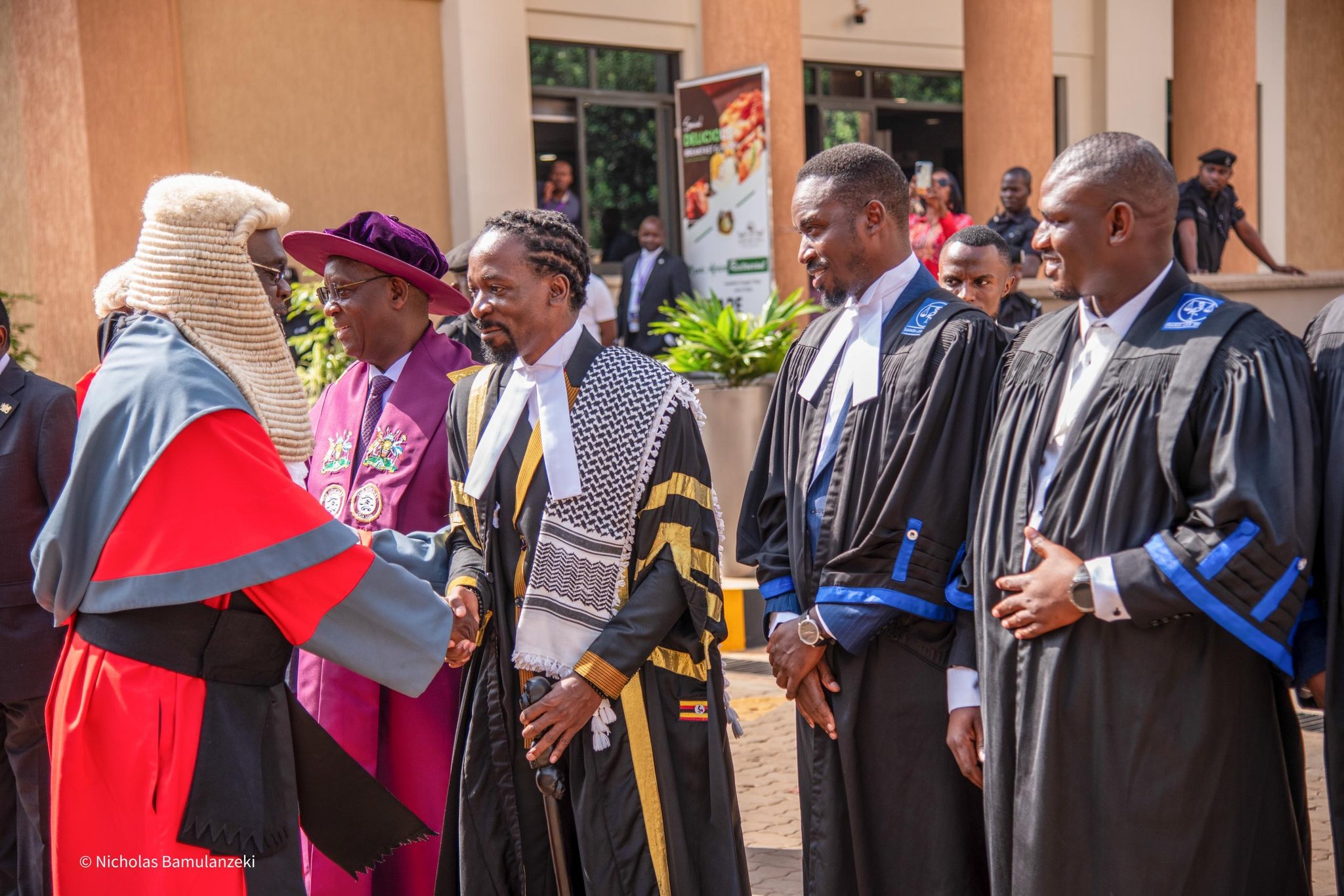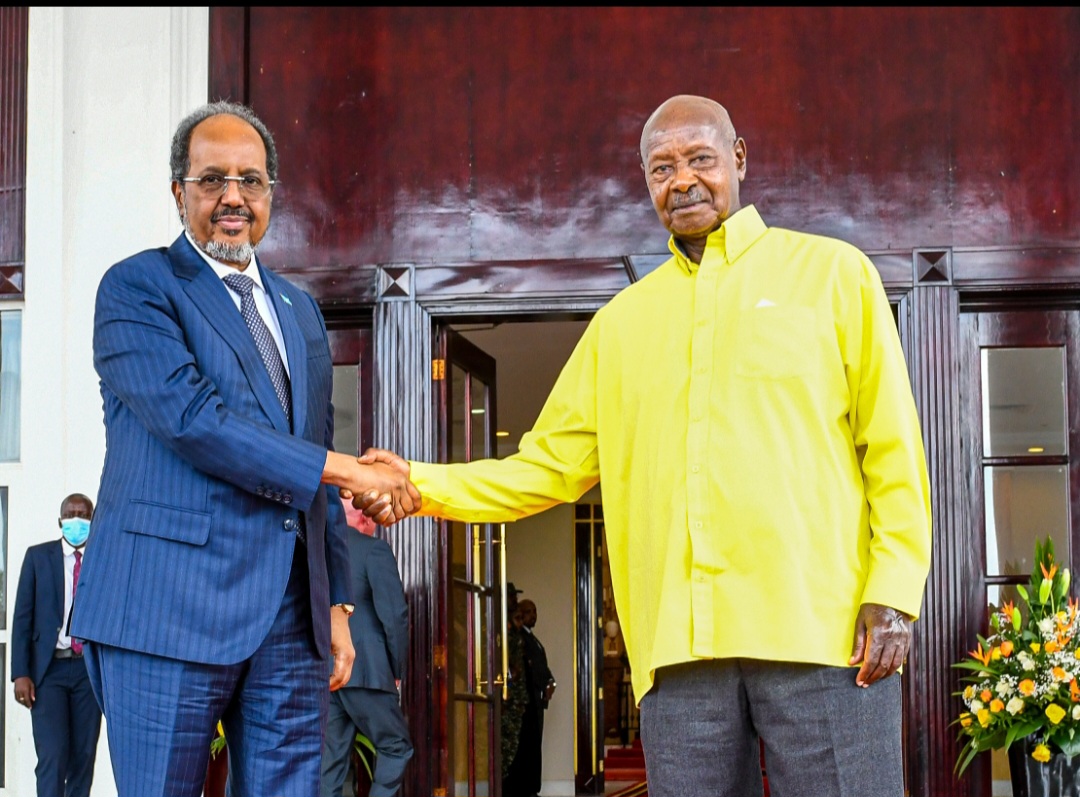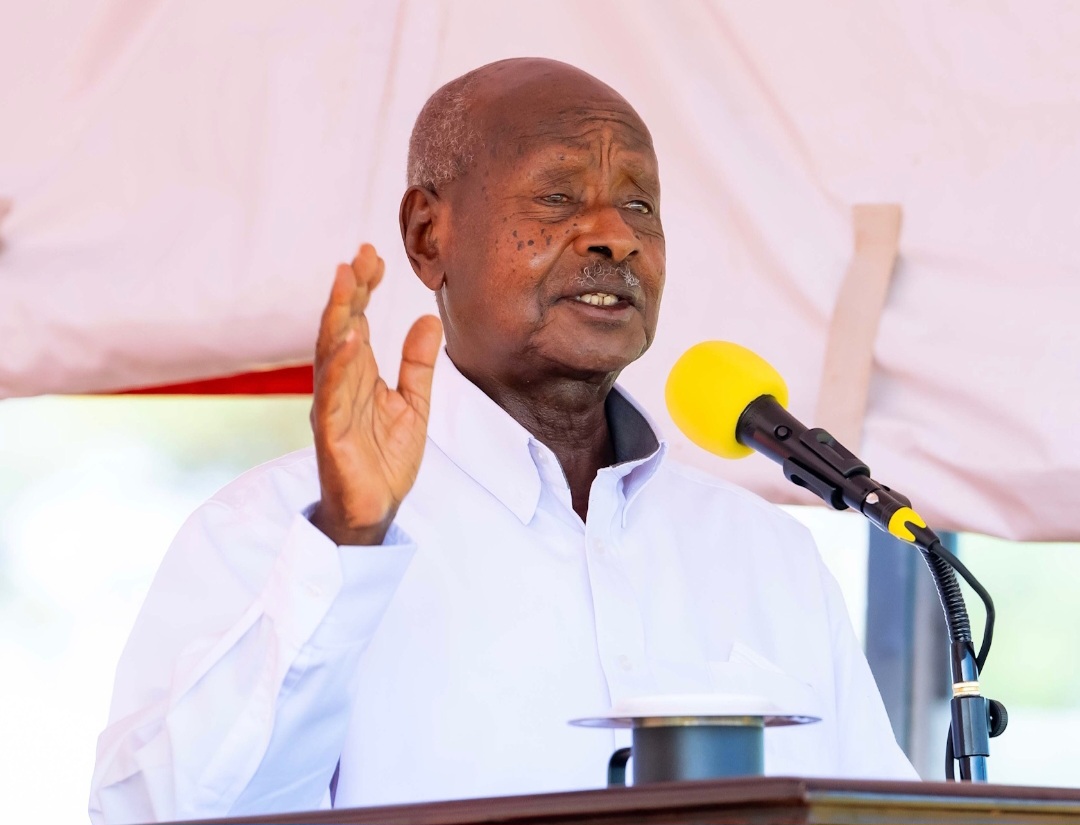Uganda Law Society (ULS) President Isaac Ssemakadde has issued a bold statement to Chief Justice Alfonse Owiny-Dollo, calling for greater judicial accountability, impartiality, and responsiveness to public grievances.
After storming out of the New Law Year 2025 event in protest over his removal from the list of speakers, Ssemakadde delivered a fiery speech, condemning the judiciary’s drift toward self-glorification over its core duty delivering justice. He warned against the silencing of critical voices and the dangerous misuse of judicial power, insisting that the judiciary must serve the people, not shield itself from scrutiny.
Ssemakadde underscored the frustrations of Ugandans, citing inefficiencies, corruption, and selective justice within the legal system. He stated that criticism of the judiciary is not an attack but rather essential feedback from taxpayers who expect fair administration of justice.
“The Ugandan people have been aggrieved by inefficiencies, corruption, and selective justice. Their voices, whether harsh or piercing, are a necessary check on judicial power. These are not attacks on the institution, but feedback that must be welcomed,” Ssemakadde remarked.
He accused sections of the judiciary of increasing hostility towards the legal fraternity and the general public, citing a troubling pattern of injudicious verdicts that have corroded public trust. He further criticized the reliance on contempt of court powers, which he described as an outdated colonial relic still used to suppress dissent.
“A judiciary that responds to criticism with repression and intimidation only reinforces its illegitimacy,” he warned, referencing the Supreme Court’s ruling declaring the trial of civilians in military courts unconstitutional as a positive step, yet highlighting ongoing concerns about judicial access and fairness.
A particularly glaring example of judicial overreach, he noted, was the imprisonment of Ivan Ssebadduka for merely expressing an opinion about the Supreme Court. “That imprisonment stands as a permanent scar on our judiciary a reminder of an error that must come to an end,” he said.
According to Ssemakadde, Uganda’s justice system is emblematic of a broader governance crisis. He accused the judiciary of being engineered to serve entrenched economic and political interests rather than delivering justice for all citizens.
“The Ugandan justice system does not deliver. This dysfunction is not accidental. It has been deliberately structured to benefit a few at the expense of many,” he asserted. He vowed that the ULS, particularly its “Radical New Bar” movement, would continue to challenge these interests until genuine reforms are realized.
Ssemakadde sought to clarify the distinction between radicalism and extremism, stressing that radicals seek to uproot systemic problems rather than create division. He identified himself and his colleagues as radicals who demanded structural transformation in Uganda’s judiciary.
“To be radical is to go to the root of the problem and solve it from there. It is not extremism. A radical goes to the root of the matter and pulls it out by its roots,” he explained.
He further decried Uganda’s prison congestion and the arbitrary use of incarceration, noting that the judicial system often punishes political opposition and the poor while favouring the powerful.
“We have just witnessed the Chief Justice threatening me with sentencing and incarceration. In Uganda, imprisonment is increasingly used as a tool of oppression rather than a means of justice,” he lamented.
To address the issue of arbitrary imprisonment, Ssemakadde announced a new campaign to ensure that every imprisoned Ugandan entitled to bail receives it. He emphasized that such efforts would help decongest prisons, reunite families, and expose vested interests that profit from mass incarceration.
“The judiciary must expect scrutiny, not silence. If it is to remain relevant, it must embrace criticism rather than criminalize it,” he declared.
He also denounced the judiciary’s reliance on the archaic charge of “scandalizing the court,” which he labelled as another tool of colonial oppression.
“Why do Ugandan courts continue to use this colonial relic? The courts must stand boldly in the light of accountability, not hide behind outdated laws,” he said.
Concluding his address, Ssemakadde affirmed that the struggle for judicial independence and accountability would persist long beyond the current officeholders. He pledged that the Radical New Bar movement would remain a steadfast force for justice in Uganda.
“The Radical New Bar is not a moment; it is a movement. We will be here long after the faces on the bench have changed. If the judiciary wishes to contribute to Uganda’s development, let it begin by acknowledging its failures. Let it earn legitimacy rather than demand it. We, the Uganda Law Society, present no apologies,” he asserted.
With a resolute tone, he declared: “We will not be silenced. We will remain an independent bar unapologetically radical, unwaveringly bold, and irrevocably committed to the fundamental principles of justice, accountability, and free expression.”
Meanwhile, his remarks have sparked debate on the role of Uganda’s judiciary, with legal and civil society stakeholders watching closely to see how the Chief Justice and the judicial system respond to these calls for reform.
Do you have a story in your community or an opinion to share with us: Email us at Submit an Article









